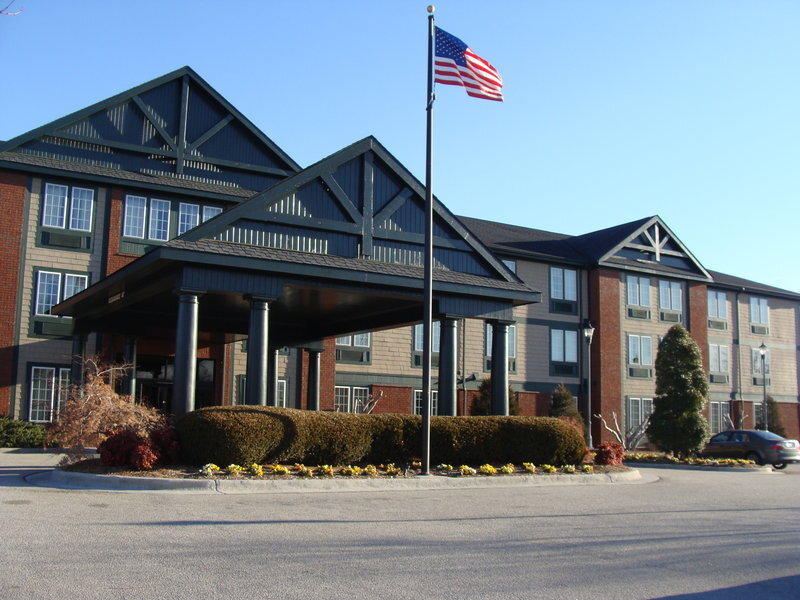Lodging establishments play a crucial role in the travel and hospitality industry, providing accommodations for travelers and tourists worldwide. While the terms “motel,” “hotel,” and “inn” are often used interchangeably, there are distinct differences between these types of establishments. Understanding these differences can help travelers make informed decisions and choose the lodging option that best suits their needs. In this article, we will explore the characteristics, target audience, and key distinctions between motels, hotels, and inns.
What is a Motel?
The term “motel” originated from the words “motor hotel” and was initially designed to cater to motorists seeking convenient overnight accommodations. Motels are typically located along highways, making them easily accessible for travelers on road trips. One of the defining characteristics of motels is their layout, with rooms conveniently situated around a parking lot for easy access to vehicles.
Motels generally offer basic amenities and services suitable for short stays. While room sizes may vary, they usually come equipped with essential facilities like a bed, a private bathroom, a television, and sometimes a small kitchenette. Motels often provide parking spaces near the rooms, allowing guests to park their vehicles close by for convenience and security. Some motels also offer additional amenities such as swimming pools, Wi-Fi, and continental breakfasts.
Motels primarily target budget-conscious travelers, families, and individuals looking for affordable and convenient accommodations during their travels. Examples of famous motels include the iconic Route 66 motels in the United States and budget motel chains like Motel 6.
What is a Hotel?
Hotels are the most common type of lodging establishments found in urban and tourist areas. They cater to a wide range of guests, including business travelers, families, and tourists. Hotels are usually larger in scale compared to motels and offer a variety of room types, ranging from standard rooms to luxurious suites.
Hotels often provide a comprehensive range of services and facilities to ensure a comfortable and enjoyable stay for their guests. These may include concierge services, room service, restaurants, fitness centers, conference rooms, and in-room amenities like minibars, flat-screen TVs, and work desks. Additionally, hotels are known for their professional staff, who are available 24/7 to assist guests with their needs.
The target audience of hotels is diverse, as they cater to different types of travelers with varying preferences and budgets. From budget-friendly options to high-end luxury hotels, the hotel industry offers a wide spectrum of choices. Some well-known hotel chains include Marriott, Hilton, and InterContinental.
What is an Inn?
Inns have a rich historical background and were traditionally known as establishments that provided lodging, food, and stabling for travelers and their horses. Today, inns retain their cozy and intimate ambiance, often located in rural or quaint settings. They offer a more personalized and charming experience compared to larger hotels.

Inns are typically smaller in scale and have fewer rooms compared to hotels. They often feature unique architecture, such as historic buildings or converted houses, adding to their character and charm. Inns offer comfortable rooms with a focus on creating a warm and welcoming atmosphere for guests. While amenities may vary, they often include comfortable beds, private bathrooms, and communal areas where guests can relax and interact with fellow travelers.
Inns typically target travelers seeking a more intimate and personalized experience, often valuing a sense of community and local connections. Bed and breakfast (B&B) establishments often fall under the category of inns, emphasizing homemade breakfast and a cozy ambiance. Examples of notable inns include the English countryside inns and charming bed and breakfasts found in picturesque locations.
Key Differences between Motels, Hotels, and Inns
While there are overlapping features and services among motels, hotels, and inns, several key differences set them apart:
Location and setting: Motels are often found along highways and major roadways, while hotels are typically located in urban and tourist areas. Inns, on the other hand, are often situated in rural or scenic locations.
Size and scale: Motels tend to be smaller establishments with fewer rooms, while hotels are larger and offer a more extensive range of facilities. Inns fall somewhere in between, typically smaller in scale compared to hotels but larger than most motels.
Room types and amenities: Hotels provide a wider variety of room types, ranging from standard rooms to luxurious suites, along with a comprehensive range of amenities and services. Motels and inns offer more basic amenities, with motels focusing on convenience and inns emphasizing a cozy and intimate atmosphere.
Services and facilities: Hotels generally offer a wide array of services and facilities, such as concierge services, restaurants, fitness centers, and conference rooms. Motels and inns provide more limited services but may still include amenities like swimming pools, Wi-Fi, and communal areas for socializing.
Target audience and guest preferences: Motels cater to budget-conscious travelers seeking convenient and affordable accommodations. Hotels appeal to a diverse range of travelers, including business travelers, families, and luxury-seeking guests. Inns target those who value a cozy and personalized experience in unique and often picturesque settings.
Conclusion
Understanding the differences between motels, hotels, and inns is crucial for travelers seeking suitable accommodations. Motels provide convenience and affordability, while hotels offer a wider range of amenities and cater to various guest preferences. Inns offer a more intimate and charming experience, often in scenic or rural locations. By considering their specific characteristics, services, and target audiences, travelers can make informed decisions when selecting their lodging, ensuring a comfortable and memorable stay that suits their individual needs and preferences.
Hotel in Wallace, NC
Escape to The Inn at River Landing in Wallace, NC, where relaxation meets recreation! Nestled beside our premier golf course, our hotel offers an unforgettable getaway with our exclusive Stay and Play packages. Enjoy luxurious accommodations and unlimited access to our pristine fairways, all for one unbeatable price. Whether you’re an avid golfer or just looking for a serene retreat, The Inn at River Landing promises an exceptional experience. Book your Stay and Play package today and tee off to the perfect vacation!
